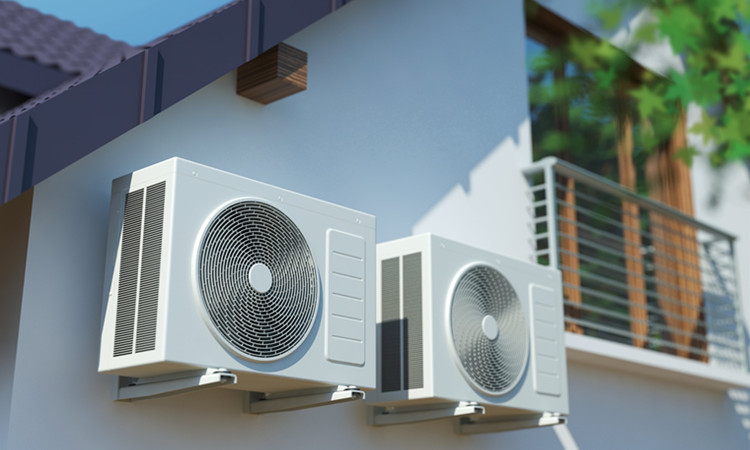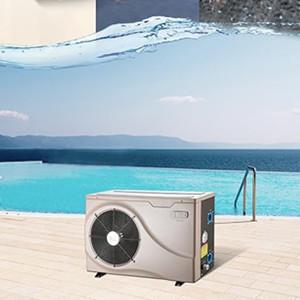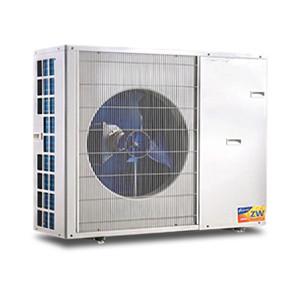Air Source Heat Pump British Standards
Your ground source heat pump or air source heat pump must comply with building codes. It's best to call an installer who can give you the guidance you need, preferably an installer certified by the Micro Generation Certification Program (MCS).
Call Leomon today for advice and feedback on improving your EPC rating and complying with building codes. We'd love to help you take the next steps to maximize your home's energy efficiency. Come on - contact us today to get started.
Design Requirements and Conditions
The key to ensuring an effective and efficient heat pump system is the precise design of the heat pump system. The design of the heat pump is absolutely critical because an oversized heat pump will not produce heat efficiently, and an undersized heat pump installation will never meet the room heating and domestic hot water needs of the building in which it is installed.
In the past, heat pumps were designed and installed according to general rules of thumb, but they often resulted in inefficiencies in the heating system. Therefore, the regulatory body MCS was established to ensure that heat pumps are properly designed and installed to high standards.
At Leomon, we design and install heat pump systems on a property-to-property basis. This ensures that we correctly size the unit and install a system that operates at 100% efficiency and meets all design requirements and standards. We only provide advice or quotations to clients after a thorough investigation of the site. This survey enables our heating system technicians to pinpoint the perfect solution for your heating and cooling requirements.
Installation requirements
Home Energy Rating
Your home energy rating, also known as the EPC rating, is an analysis of your home's energy efficiency. The EPC provides statistics on property energy use and average energy prices, as well as guidance on how to reduce energy use and save money. EPC rates properties' energy efficiency values from A to G, with A being the most efficient and G the least efficient. The EPC rating is valid for 10 years.
For heat pumps, the EPC report typically forms the basis for determining how much financial assistance a homeowner can apply for under the government's Renewable Heat Incentive (RHI).
Heat pump type
Gas source
Ground source
Hybrid heat pump system

Heat pump space
Depending on the type of geothermal heat pump system you choose, for every ton of heating and cooling energy you need, you'll need between 400 and 600 feet of loop. For a 3-ton device, this usually translates to around 1,800 feet, which is normal expectations for a typical home.
In a domestic air source heat pump, the external unit is no larger than a washing machine and can be placed where the air is fresh. However, installation of heat pump systems on pitched roofs is not permitted. Also, if the air source heat pump is to be installed on a flat roof, all parts must be at least one meter from the outside edge of the roof.
Building regulations
Regulations and government regulations
For ground source heat pump installations on residential properties, no planning permission application is required as it is considered a permitted development. The same applies to water source heat pump installations.
The installation of an air source heat pump in a residential building is also considered a licensed development that does not require planning permission. However, the following conditions must be met:
1. Only one air source heat pump is allowed. If you want to install another air source heat pump, you may need to apply for planning permission.
2. The heat pump must be installed on a flat surface, either on the ground or on a flat roof. If it is lifted off the ground, it must be at least 1m from the edge of the elevation.
3. The installation of the heat pump must meet the planning standard requirements of the Micro-Generation Certification Program.
4. Air source heat pumps must be used strictly for heating only.
5. The volume of the outdoor compressor unit of the air source heat pump shall not exceed 0.6m3.
6. Air source heat pumps must be positioned to mitigate their impact on the building's exterior.
7. There should be a clearance of at least 1 meter between the air source heat pump and the building boundary.
Heat Pump Benefits
1. Central Heating Alternatives
2. Oil and gas electrical comparison
3. Efficiency
4. Save money
5. Lasting
6. Renewable thermal excitation
What is the minimum temperature required for a heat pump?
The minimum temperature required for a heat pump to operate effectively is unclear. This is because the temperature depends on the quality, make and model of the associated heat pump system. There are high-quality heat pump systems and low-end heat pump systems.
For low-end heat pump systems, the temperature at which the unit can no longer effectively extract heat is often around -10 to -15 degrees Celsius. For a product on the high quality end, you can expect the output to stop around -18 to -22 degrees Celsius.
You may be lucky enough to find a brand that operates efficiently at -25 degrees Celsius. However, with such systems, you should be aware that they will often have a booster heater to maintain their heat-producing capacity. This means that if your heat pump continues to work at that speed, you will spend more.
As expected, these are more applicable to air source heat pumps than ground source heat pumps. This is because air source heat pumps are installed outdoors, exposed to the weather and the elements. On the other hand, ground source heat pumps are installed underground and are not affected by weather and factors. In addition, the natural temperature of the ground is fairly constant.
Electrical requirements
1. For the effective and efficient operation of the heat pump system, at least 8 wires are required to be connected to the thermostat.
2. The design of the wiring shall reduce the voltage drop from the main circuit breaker or fuse panel to the equipment to 2% (maximum).
3. Local codes should be consulted to determine proper wire gauge and length.
4. When placing the device under the overhang, a clearance of at least 36 inches (91.4 cm) must be ensured and arrangements should be made to deflect the hot exhaust air away from the overhang.
MCS Planning Criteria and Noise Level Requirements
The Micro Power Generation Certification Program is a program designed to help improve the efficiency and reliability of micro power generation devices such as heat pumps. According to the MCS planning criteria for air source heat pumps, the background noise level is assumed to be 40 dB(A). For correct calculations when determining noise levels, different background noise values should not be used.
While it is the ultimate responsibility of the owner to ensure that all conditions and constraints to allow development are met, equipment installers typically check that the installation meets the planning criteria of the Microgeneration Certification Scheme (MCS 020), including noise requirements.
Leomon is a licensed MCS company. We conducted a survey to ensure sound thresholds were in line with MCS 020 planning requirements and provided advice on the best locations. By using Leomon heat pumps, you can rest assured that we will carry out the necessary checks to ensure that the installation meets the development requirements allowed during the site investigation phase and that any issues will be brought to your attention.
Standard of conduct
A professional heat pump installer can help determine if a home or building is susceptible to indoor air emissions issues, which may be due to bio-organic resins or vapors, low air quality, or high humidity. If allergies are a concern, heating and air conditioning systems should be serviced by a certified technician who will prescribe system modifications to prevent issues that adversely affect your safety and comfort.
Renewable Thermal Incentive Requirements
Program Requirements
1. You must own the heat pump system, or you must have approval from anyone else to represent them with multiple owners.
2. The plant must be in the form and size of a qualified sustainable power technology.
3. The installation of ground source heat pumps, water source heat pumps, biogas below 200kWth, solid biomass, geothermal, waste-to-energy, and solar collectors must be completed on or after July 15, 2009.
4. Air-to-water heat pumps, 200Wth biomass cogeneration systems, biogas and above, and waste networks must be installed on or after December 4, 2013.
5. You cannot use public funds to fund certain parts of the project.
6. The heat pump system must be new when installed.
7. The factory must use liquid or steam as heat transfer medium.
8. The metering system needs to have the correct metering form, correctly adjusted and positioned in the correct position.
9. Biomass boilers must meet air quality requirements - this applies to boilers submitted after September 2013.
Key point
1. Before designing a ground source heat pump and installing a system, many important factors must be considered. These factors also determine the total subsequent cost of the heat pump system.
2. Make sure you use an experienced installer who is certified by the Micro Generation Certification Scheme (MCS) to install your heat pump.
3. Using an MCS-certified installer will ensure the use of approved products and make you eligible for the Renewable Heat Incentive (RHI) program and earn money for installing renewable energy in your home.
4. Boost your home's energy rating with attic and cavity wall insulation before you consider installing a heat pump.
5. The new regulations mean that heat pumps must be labeled with an energy symbol. This label provides information on the energy efficiency of heat pumps. Dark green labels indicate that the system is efficient, while red indicates inefficiency.
Talk to an expert
If you are considering installing a heat pump in an existing building, or want to provide pricing and specifications for an upcoming new development, Leomon can support. Clients contact us regularly to help them improve the energy efficiency of their existing homes. We also frequently retrofit modern heating systems to help properties achieve higher SAP/EPC rankings and reduce operating costs. Our clients range from homeowners to major construction companies and electrical/mechanical contractors.
We are a dedicated team of energy efficiency professionals and experts. We have grown into a leading provider of smart solar, heating and cooling solutions both domestically and commercially. We offer our clients a tailored approach to perfectly match their unique needs.
We can help you apply for grants, and we are aware of any funds you may benefit from. We master all technical issues and industry terminology including MCS, RHI, RHPP, FIT, ROI, REAL, RECC and more.
To ask any questions about heat pumps or our other technologies, please email us.





